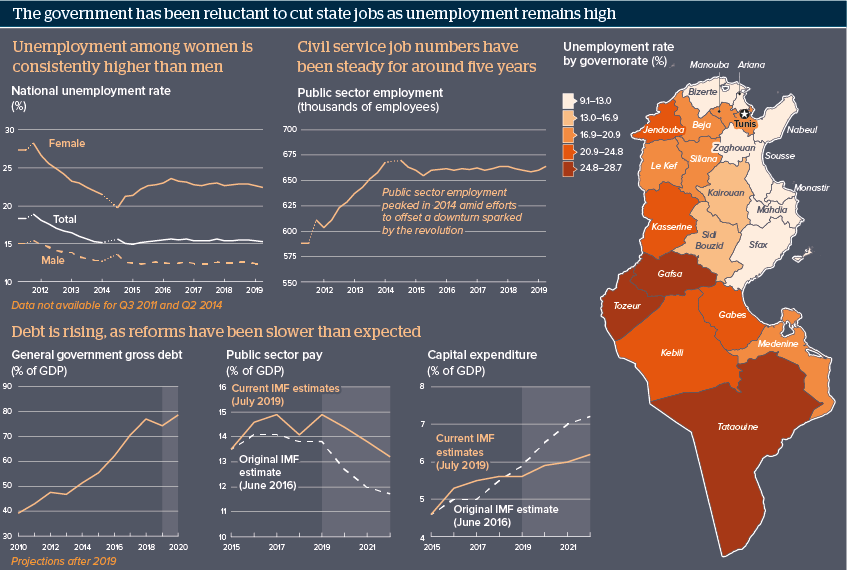Tunisian public wage bill will limit state investment
Tunis is wary of cutting state jobs -- and thus its salary burden -- which is hampering capital expenditure
Source: Tunisian National Statistics Institute; IMF
Outlook
Economic upheaval in the wake of the 2011 revolution prompted a major government employment drive in the public sector.
An IMF package agreed in 2016 then envisaged cuts to the public wage bill. Yet these have been slower than planned amid popular resistance and sluggish private sector job creation. Moreover, a pay deal agreed this year with unions means the 2020 budget will see a substantial uptick in expenditure on salaries.
This limits the scope for capital expenditure. Meanwhile, government debt has risen from 43.2% of GDP in 2011 to 74.4% this year.
Impacts
- Lack of opportunities will fuel persistent unrest, especially in the deprived south and interior.
- Without private sector expansion to provide jobs, Tunis will remain wary of reducing the civil service.
- With rising debt and investment lower than planned to drive long-term growth, however, its hand may eventually be forced.
See also
- Tunisian labour union is moving towards opposition - Dec 8, 2022
- Maghreb leaders face a growing challenge from unions - Dec 12, 2019
- Tunisia faces recurring austerity protests - Jan 15, 2018
- More graphic analysis
